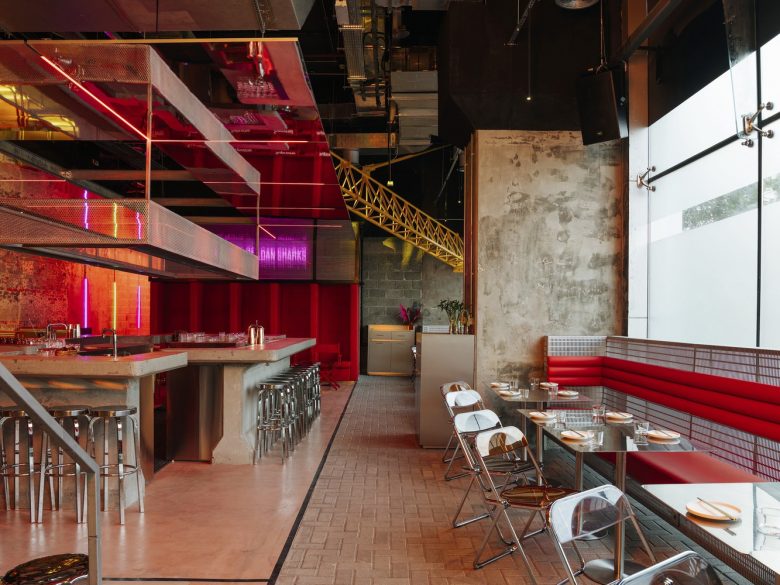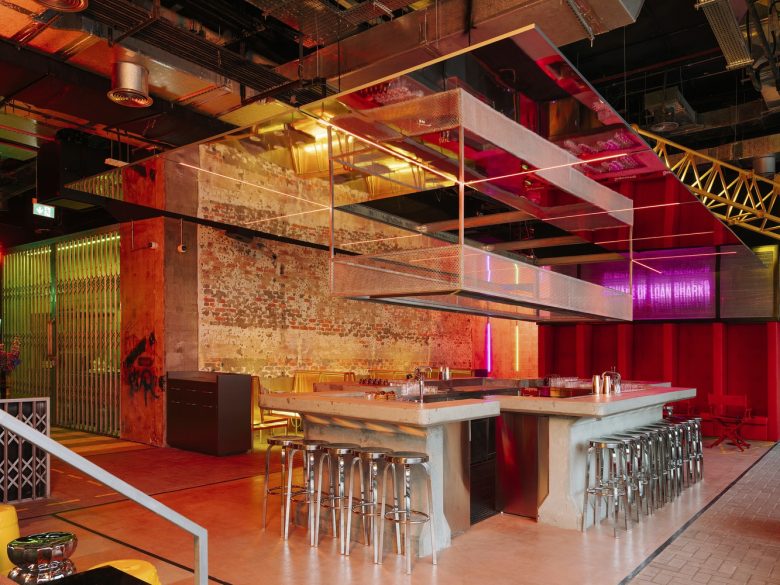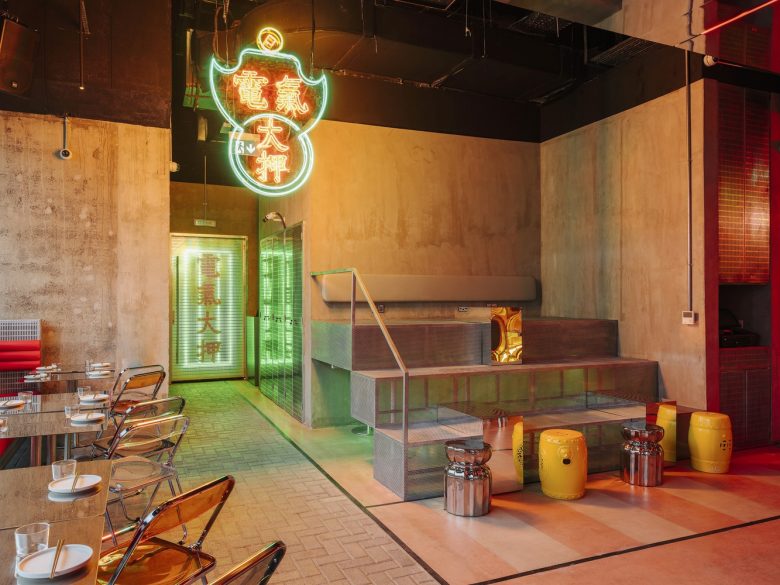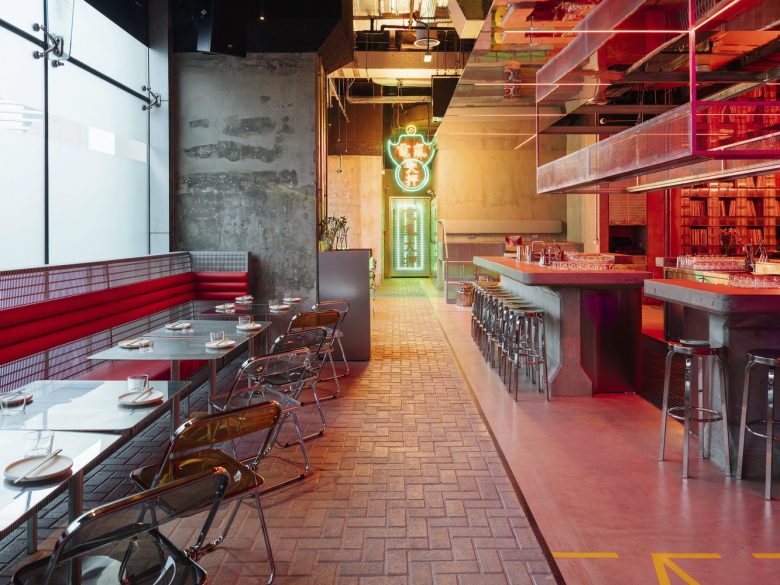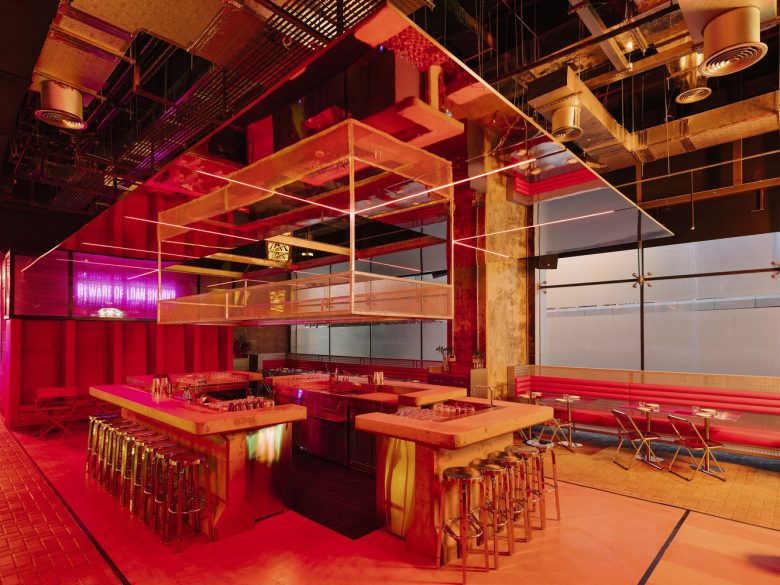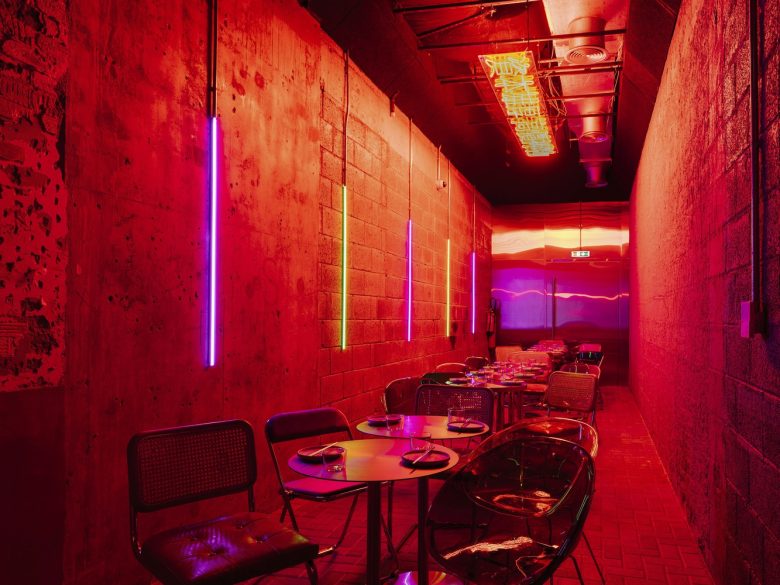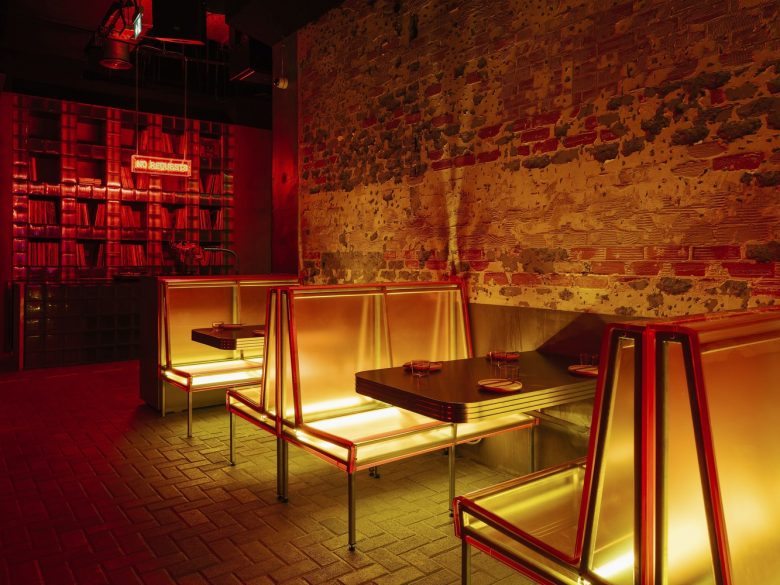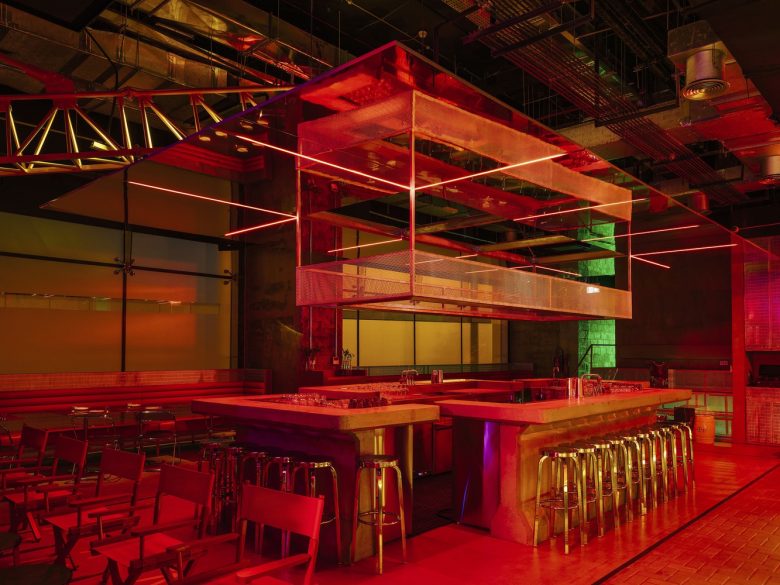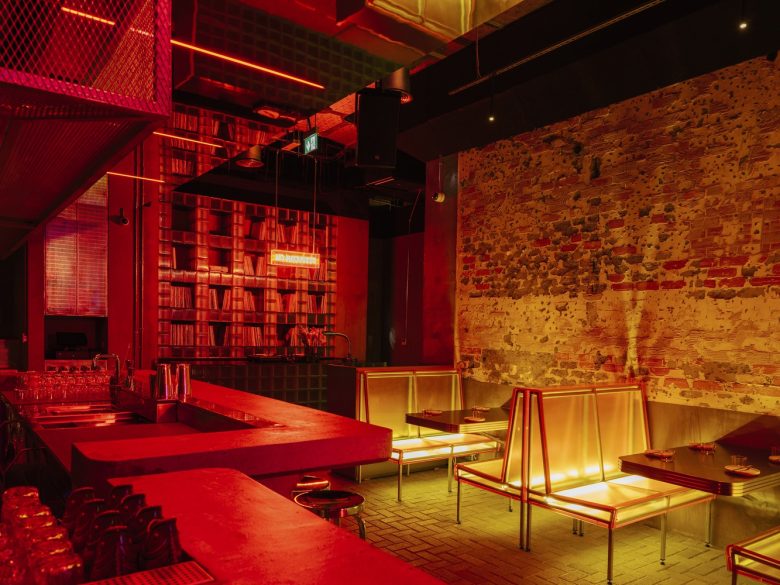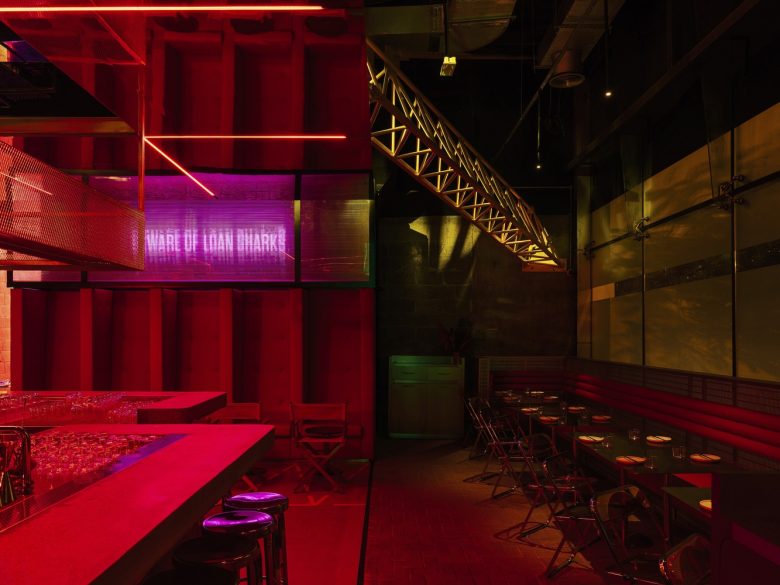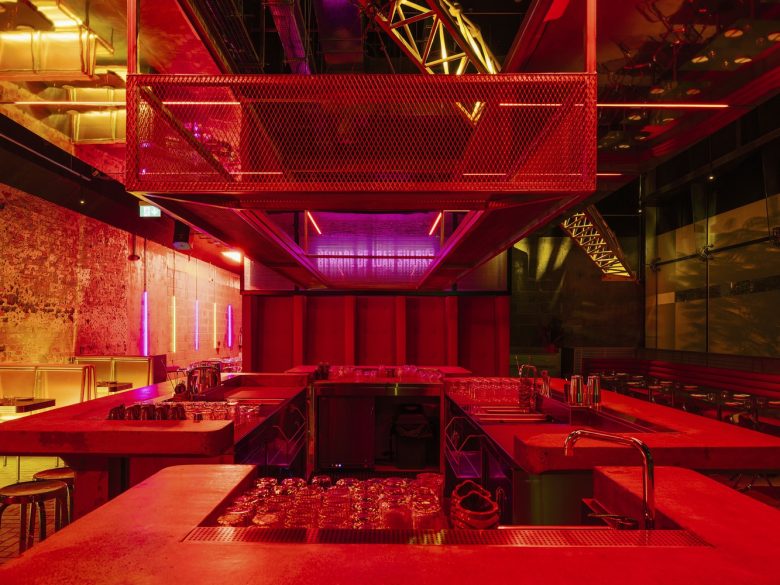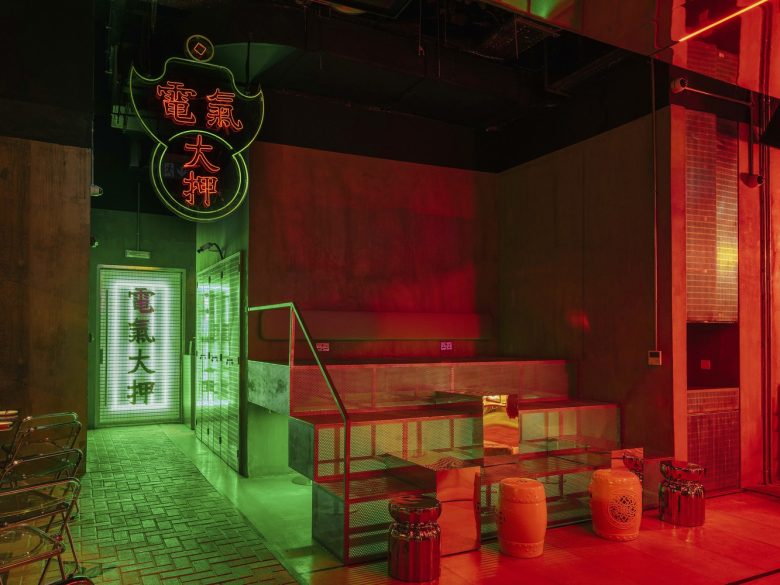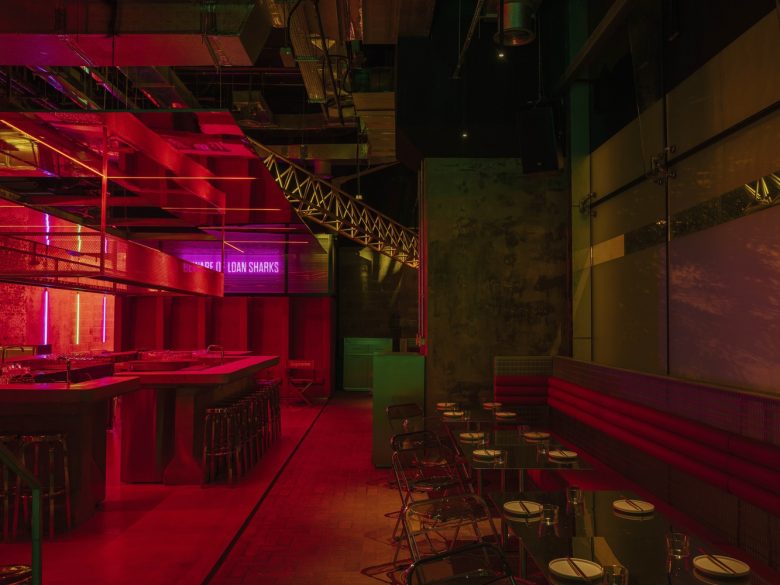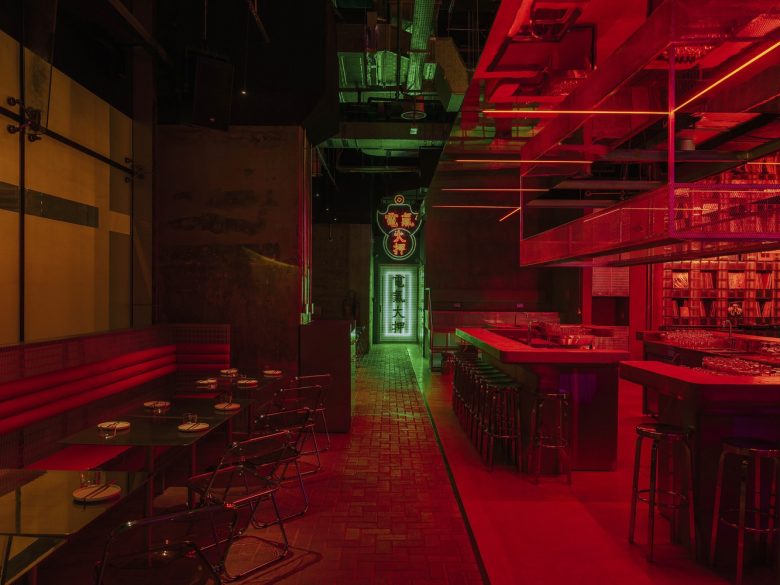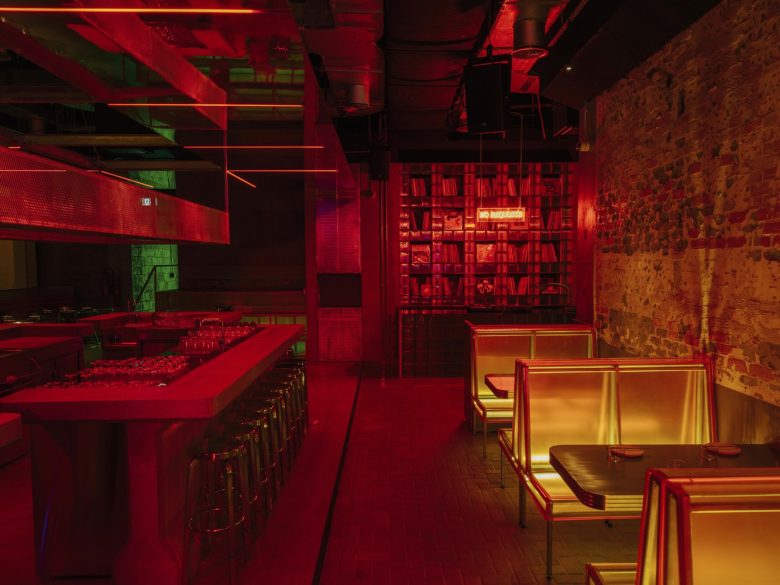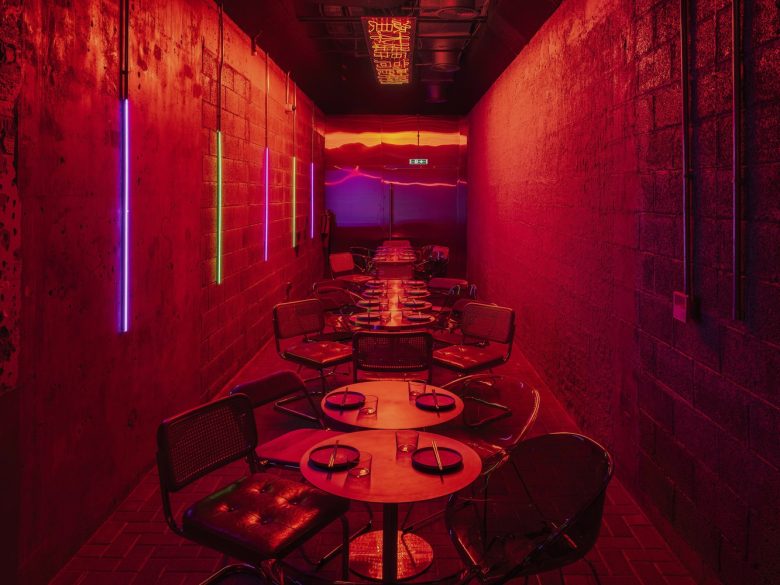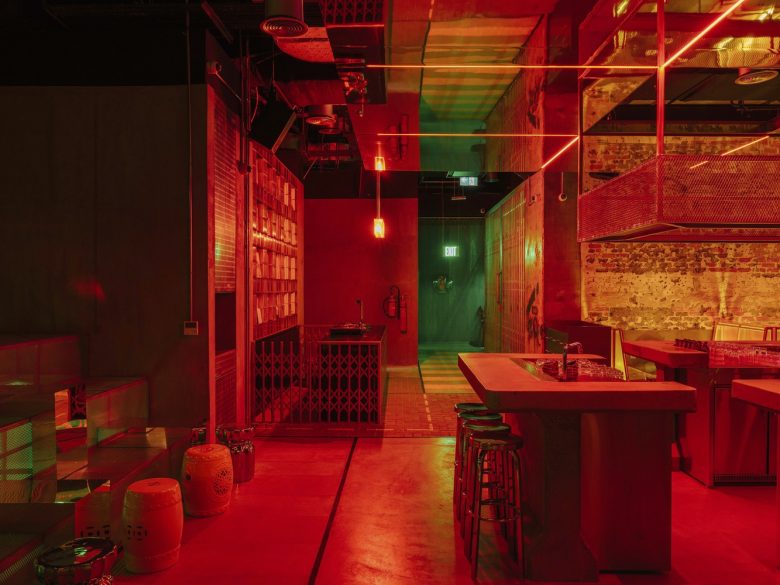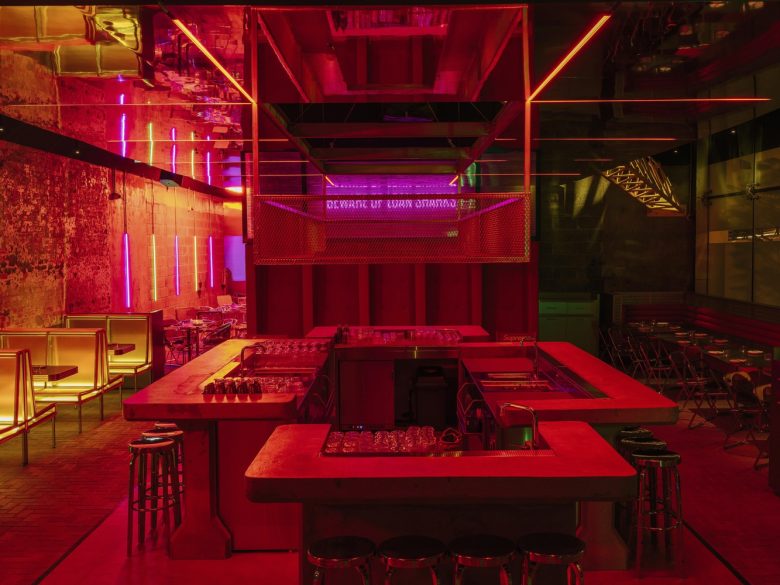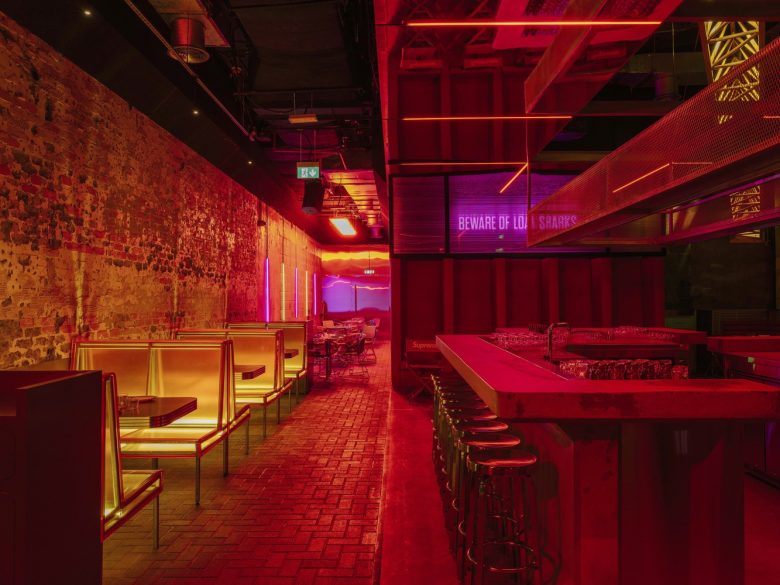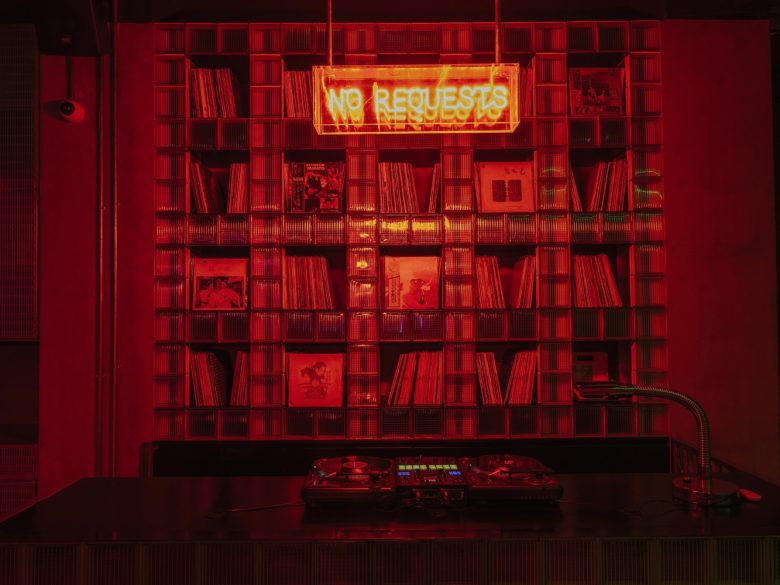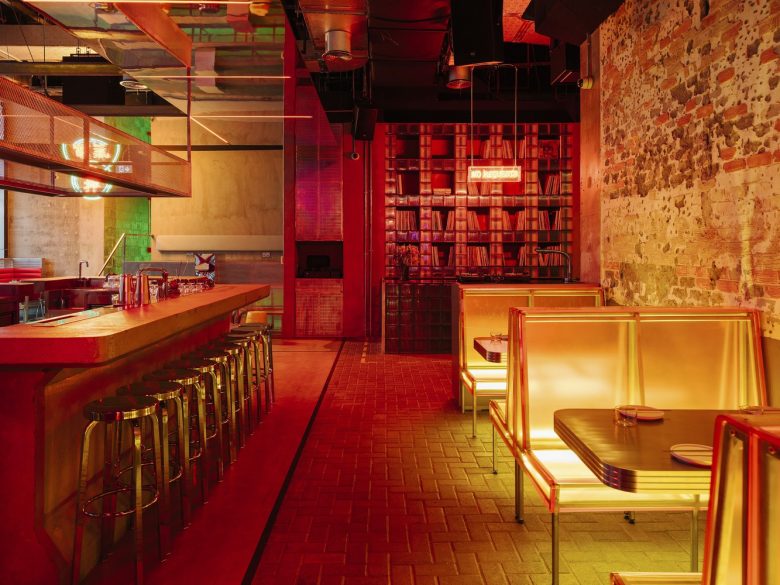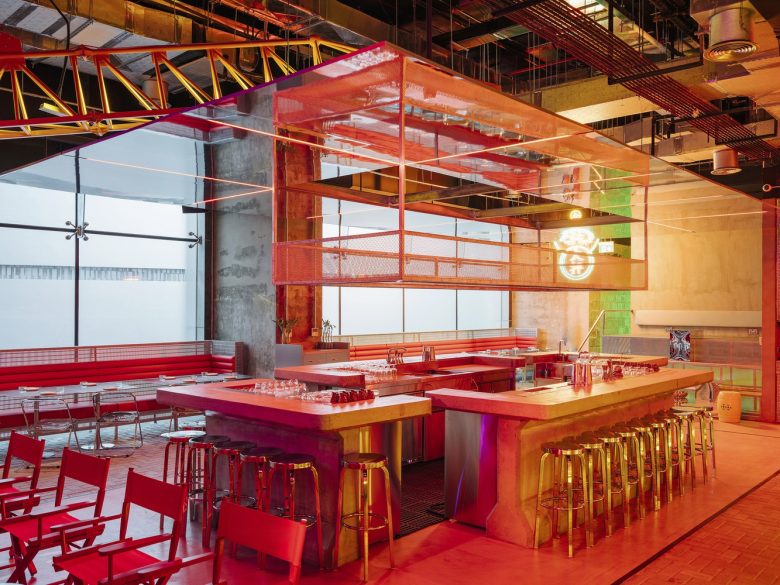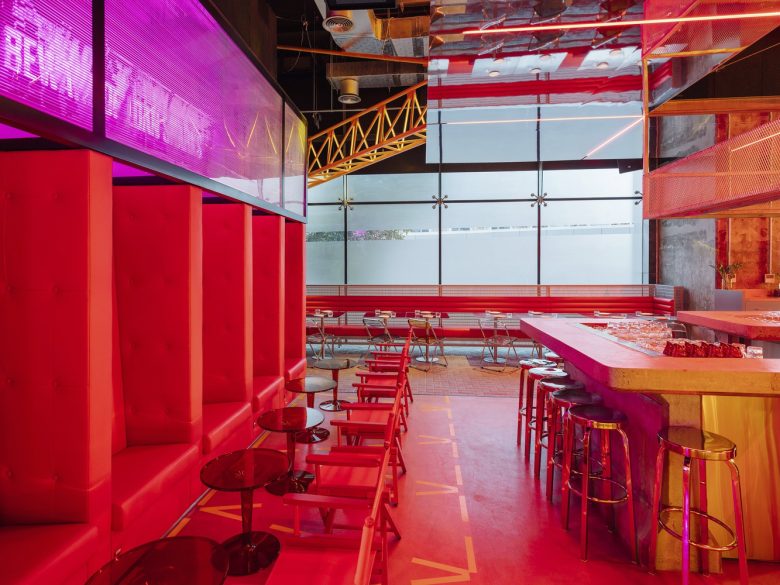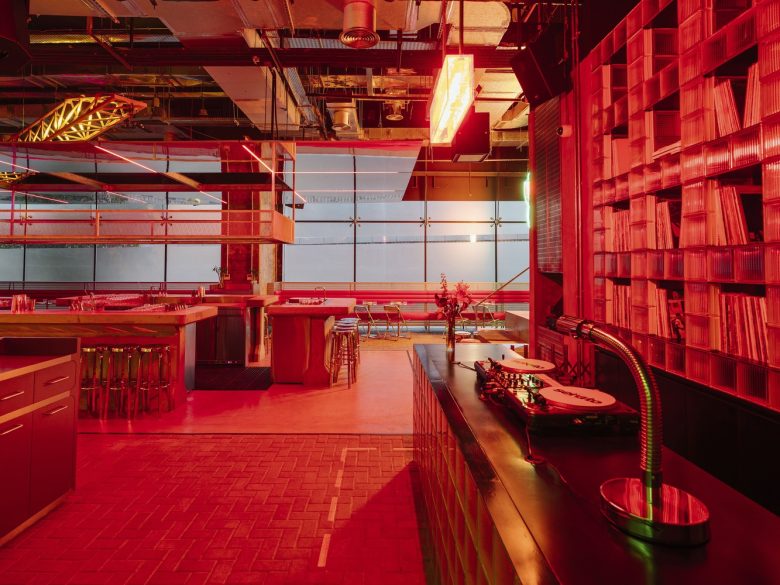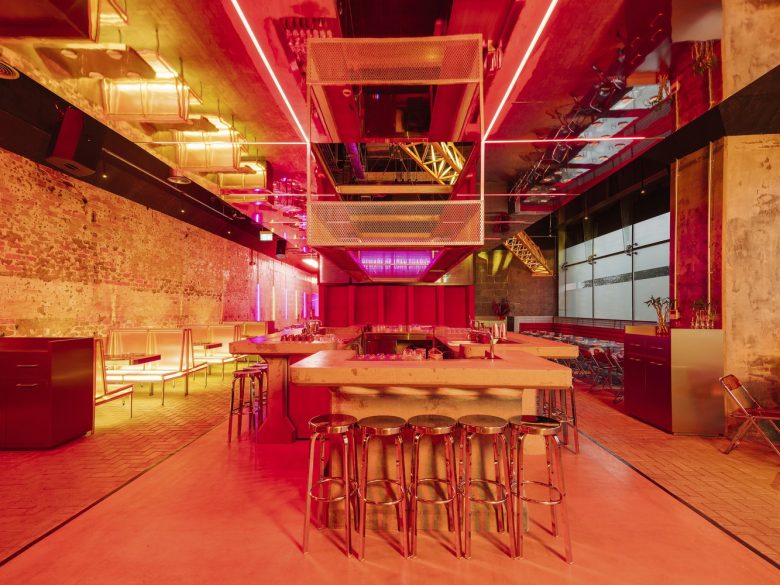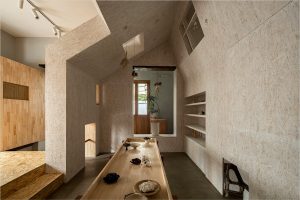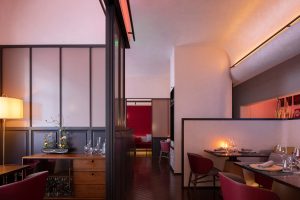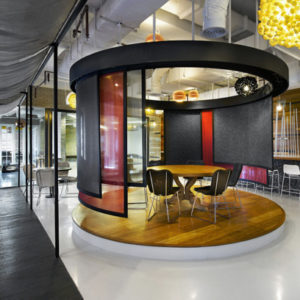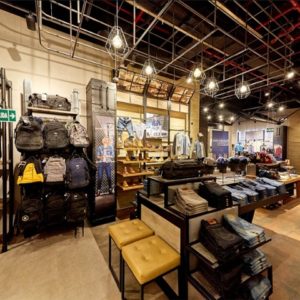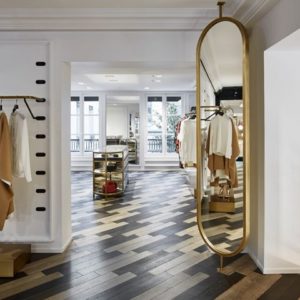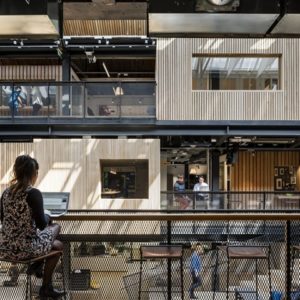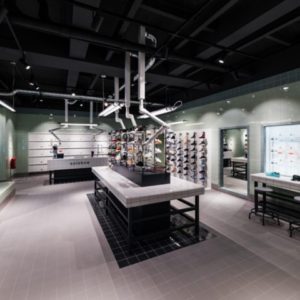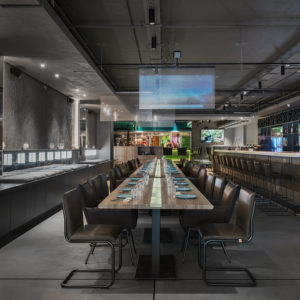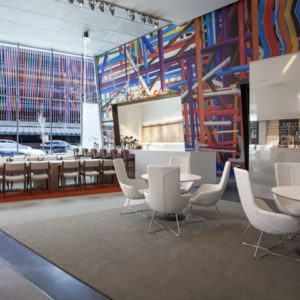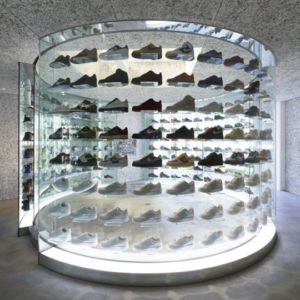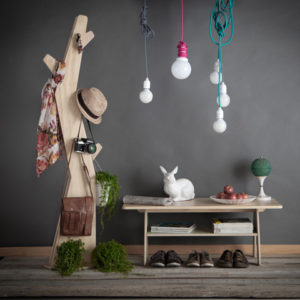
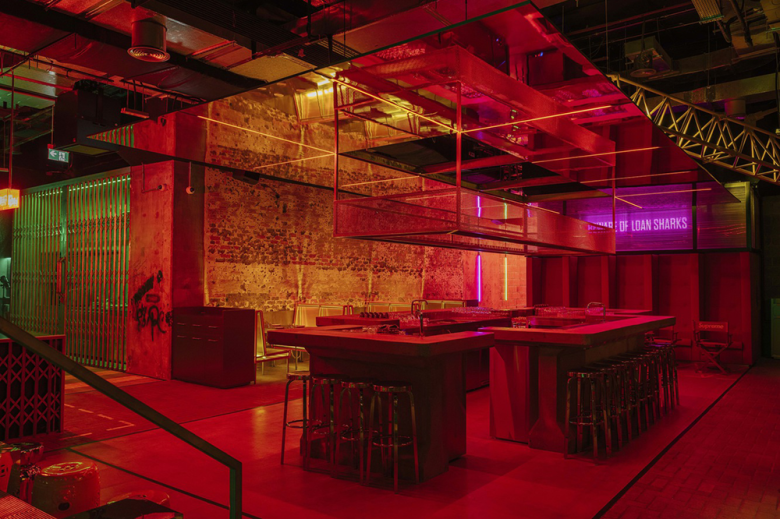
Electric Pawn Shop takes birth as an f&b bar in the back of the H-Hotel, reading the traces of the restaurant that was once there. It projects to the inside the movement, light, and speed of the cars on the second of November bridge, generating a theatrical play of reflections.
The project takes its inspiration from the 70’s Chinatown of New York —replicating its dark and dystopian vibe—whilst staying true to the essence of UAE’s culture. Consequently, the metropolitan environment shaping the bar is characterized by an after-dark dining feel, retro chairs, and red neon interiors where good music and exotic cuisine could merge to create a holistic sensory experience. We envisioned creating a new nightlife atmosphere unfolding a new generation of Asian bars through a venue that fuses counter-culture and underground music. The limitations and possibilities of the tenant space were something we deeply embraced in the design process, as we looked deep into its left-over textures, elements, and memories as inspiring motives.
The 300 sqm space is interpreted as an urban object orbiting around a central piazza, where different streets intersect. At the heart of the piazza sits a sculptural fragmented bar, formed by four bridge concrete beams, standing majestically on the floor. Honest, the hovering canopy reveals its structure and reflects through its mirrors the different light colors, unveiling the three-dimensionality of the space. The visitor feels the structural tension by peeking through the void of the architectonic mirror, seeing steel I-beams, tension cables, and a yellow crane bolted into the back wall. Adding to the honesty of this palimpsest, pumps and brackets render the ceiling a multi-layered canvas.
Through its different treatments, the floor acts as a navigation map between one street and the other. Guided by neon signs, the visitors experience unique adventures while discovering glimpses of the events that are yet to unfold. From one end, the alleyway with its street furniture culminates at an elusive stainless reflective façade, creating a dreamy atmosphere.
Wagon seating, a couple of seating, a common dining area, and a metallic amphitheater, generate artificial topographies with particular encounters. Embraced by a state of “emptiness”, the green-enclosed valentine room projects informal events which typically happen in the leftover corners of the city. On the same street, pop-up museums with distinctive colors appear randomly to the left and right. As an illustration, the vinyl museum exposes a fine selection of vinyl and projects through the glass blocks an amalgam of different colors and feelings. The space acts as an autobiography, where each design decision takes inspiration from food, music, and cocktails, telling the story of the client, the DJ, the chef, and the architect.
Finally, rough materials such as concrete, perforated metal sheets, glass blocks, GI metal, neon lighting, brick pavement, water, and mirrors create a playful imaginative environment. Mimicking the city of Dubai, the phenomenon generated by Electric Pawn Shop, changes our perception of reality by the second, making the visitor wonder if their experience is real or a mere illusion.
Architects: Accent Design Group
Lead Architect: Elie Abs
Concept Design & Development: Joy Abi Rizk, Vanessa Abou Harb, Maria Ghraich, Nathalie Saade, Leya Salman
Photographs: Augustine Paredes
